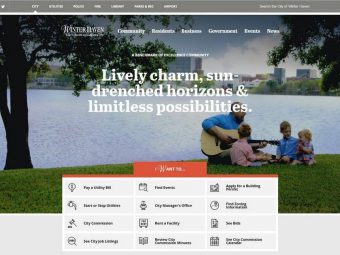Yext can be a handy, timesaving local search engine optimization (SEO) tool for marketers. However, like any tool, a lot has to do with selecting the right one for the situation. Sometimes you need a tack hammer, and others a pneumatic jackhammer. Sometimes either will do, but when it comes to how your business is listed online, you are going to want to pick the right tool for the job.
For those of you unfamiliar with what Yext is, it’s a service that helps businesses update dozens of online local directories from one place. Being accurately represented in local directories is a serious consideration when it comes to local SEO. They have agreements with most any local directory that matters, as well as many that don’t (looking at you, Yalwa.com). This allows you to enter your businesses information into just one form on Yext.com, and have the information duplicated across many directories. You can claim all of these directory listings yourself, but it can be tedious and time consuming to do so.
Who Yext is right for
Businesses that are new, expanding, have a local focus, and/or don’t have a marketing staff are the best candidates for using Yext. Local search engine optimization (SEO) has a lot to do with how well represented your businesses name, address and phone number are across the Internet along side descriptions of what you do.
A rough example: if 150 reputable websites indicate Vincenzo’s Pizzeria in Exampletown, Florida serves pizza, and only 10 equally reputable websites list Luigi’s Pizzeria, what information would a search engine have to go on to rank Luigi’s above Vincenzo’s for a search for pizza in Exampletown, Florida? Luigi might be baking masterpieces while Vincenzo puts out hot, circular trash, but Google doesn’t know that. Google’s search results don’t take into account much of anything that isn’t already on the Internet, or as someone once famously said: “all I know is what’s on the Internet.”
Yext can help level the playing field a bit for younger upstart local competitors, or for companies expanding into a new market. While it’s true your business will be listed in just about every directory after a few year, but can you afford to wait, and do you trust data providers to get everything right?
Who Yext is wrong for
If you have just one business location, don’t have a geographic target, and have occupied your current business location(s) for several years without any changes to your phone number or street address you should probably skip Yext. Going through and claiming your listings “by hand” also has some benefits.
While you want to keep your business location’s name, address and phone number as consistent as possible across all local directories, varying how your business is described in the listings description and categories doesn’t hurt. Most every directory uses a slightly different list of categories to describe businesses. Your business might match three categories on one directory, five on another, and just one on some. Going through and matching yourself as accurately as possible is a step worth taking for some businesses.
Also, if 50 directories have the exact same description of your business, it’s unlikely a search engine is going to pay attention to it more than once, discarding the other 49 instances of the description as duplicate content. As often as you can, seek to describe your company in a variety of different ways.
Put yourself in Google’s shoes: if you are trying to decide if a resort is a good fit for your whole family to vacation at for a week, and all you can find about the resort is the same 100-200-word description over and over again, how confident would you be about booking it? It pays off to give search engines every chance to understand what your business does, where they do it and who they do it for.
Or just leave it to a professional
If your business relies on locals being able to find your business when searching online for a business of its type, it’s a good idea to get some professional SEO help. I’ve written before about how SEO is like landscaping, most anyone can do it, but businesses normally hire a landscaping crew anyway, because it won’t get done otherwise. You can hire someone in house, but often times you’ll find that outsourcing the work to a reputable SEO, can be both more effective and cost less.
Any SEO worth their salt will claim all of these listings in the course of a local SEO campaign, and do much much more to get real results.
Tl;dr, here’s a quick breakdown of the pros and cons of using Yext to claim your business location’s directory listings:
Pros
- Easier to claim listings
- Faster than doing it manually
- Finally integrated with Google+ Local
- Great for new locations
- Directory listings remain even after you cancel
- Helps your website rank better locally
Cons
- All at once, doesn’t show natural, steady progress
- No unique descriptions
- Not at all cheap
- Less effective for established locations
- Must sign up for at least one year
- Does little to affect national rankings




